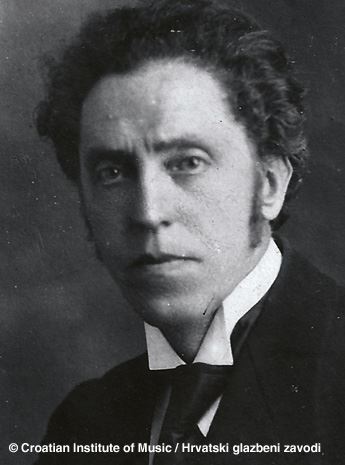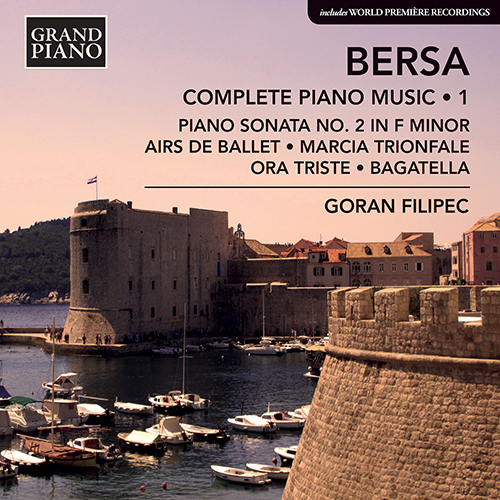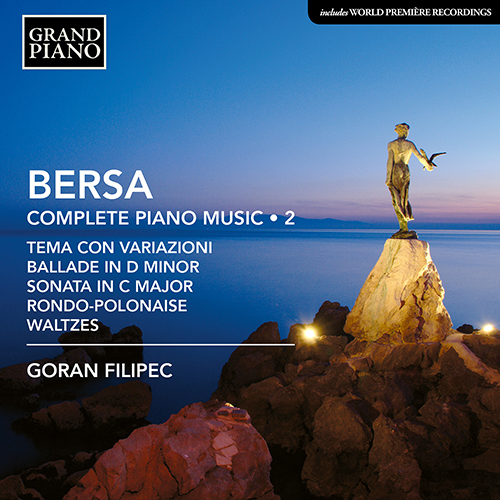
Blagoje Bersa (1873 - 1934)
As a composer of symphonic music, operas and songs, as well as chamber and piano works, Blagoje Bersa (1873–1934) was undoubtedly one of the central figures of Croatian musical life at the turn of the 20th century. Born in Dubrovnik into a family of passionate amateur musicians, Bersa learned to play the piano by participating in performances with members of his family. He received his primary education in Zadar, Vienna and Trieste, and from 1893 to 1896 he studied music in Zagreb with Ivan Zajc, the renowned Croatian opera composer. From 1896 to 1899 he studied piano in Vienna with Julius Epstein and composition with Robert Fuchs (who also taught Gustav Mahler and Jean Sibelius). In 1902, he was appointed conductor at the theatre of Graz, and from 1911 to 1918 he worked as artistic counsellor and arranger at the publishing house L. Doblinger. After the end of the First World War, Bersa returned permanently to Croatia and from 1922 he taught composition and instrumentation at the Music Academy in Zagreb—a position he held until his death in 1934.
Bersa’s artistic personality synthesises cultures of the Mediterranean, Central Europe and the Balkans. His style is mainly marked by Classicism and Romanticism, but through his awareness of the music of Richard Strauss, Gustav Mahler, Giacomo Puccini and other European composers from the beginning of 20th century, he introduced new stylistic elements into his music, and these elements are more often traceable in his symphonic works than of those for piano.
He contributed significantly to the development of Croatian and Yugoslavian music, and as a pedagogue he educated an important number of composers who contributed significantly to musical life in that region during the 20th century. His pupils were Rudolf Matz, Zlatko Grgoševic, Božidar Kunc, Boris Papandopulo, Milo Cipra, Ivan Brkanovic, Josip Vrhovski, Bruno Bjelinski, Miroslav Magdalenic, Zvonimir Bradic, Slavko Zlatic, Nikola Hercigonja and Juraj Stahuljak.



 Grand Piano has gained a reputation for producing high quality recordings of rare keyboard gems. Dedicated to the exploration of undiscovered piano repertoire, the label specialises in complete cycles of piano works by many lesser-known composers, whose output might otherwise have remained unknown and unrecorded.
Grand Piano has gained a reputation for producing high quality recordings of rare keyboard gems. Dedicated to the exploration of undiscovered piano repertoire, the label specialises in complete cycles of piano works by many lesser-known composers, whose output might otherwise have remained unknown and unrecorded.






